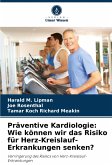
Broschiertes Buch
Verringerung des Risikos von Herz-Kreislauf-Erkrankungen
9. Dezember 2024
Verlag Unser Wissen
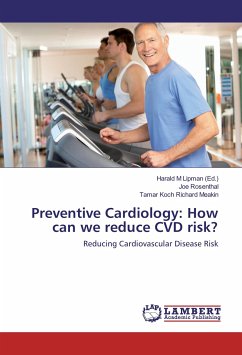
23,99 €
Versandfertig in 6-10 Tagen
Broschiertes Buch
Reducing Cardiovascular Disease Risk
18. Januar 2017
LAP Lambert Academic Publishing
24,99 €
Versandfertig in 1-2 Wochen
Broschiertes Buch
Reducir el riesgo de enfermedades cardiovasculares
9. Dezember 2024
Ediciones Nuestro Conocimiento
24,99 €
Versandfertig in 6-10 Tagen
Broschiertes Buch
Ridurre il rischio di malattie cardiovascolari
9. Dezember 2024
Edizioni Sapienza
24,99 €
Versandfertig in 6-10 Tagen
Broschiertes Buch
Réduire les risques de maladies cardiovasculaires
9. Dezember 2024
Editions Notre Savoir
24,99 €
Versandfertig in 6-10 Tagen
Broschiertes Buch
Reduzir o risco de doenças cardiovasculares
9. Dezember 2024
Edições Nosso Conhecimento
Ähnliche Artikel
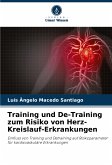
Broschiertes Buch
Einfluss von Training und Detraining auf Risikoparameter für kardiovaskuläre Erkrankungen
22. Juli 2024
Verlag Unser Wissen
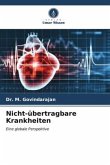
Broschiertes Buch
Eine globale Perspektive
23. November 2023
Verlag Unser Wissen

Broschiertes Buch
Die Prävalenz von Risikofaktoren für Herz-Kreislauf-Erkrankungen und der Lebensstil von Lehrern im Ruhestand
12. Juni 2023
Verlag Unser Wissen
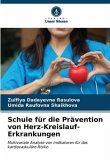
Broschiertes Buch
Multivariate Analyse von Indikatoren für das kardiovaskuläre Risiko
6. November 2023
Verlag Unser Wissen
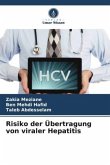

Broschiertes Buch
Ein Einblick in die Rolle der Adipositas im Kindesalter bei aktuellen und zukünftigen kardiovaskulären Anomalien
14. August 2024
Verlag Unser Wissen

Broschiertes Buch
Extraartikuläre schädliche Wirkungen von Harnsäure
30. Januar 2024
Verlag Unser Wissen

Broschiertes Buch
-Erste englische Ausgabe-
18. Juli 2021
Verlag Unser Wissen
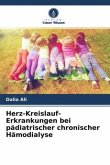
Broschiertes Buch
1. April 2022
Verlag Unser Wissen
Ähnlichkeitssuche: Fact®Finder von OMIKRON
